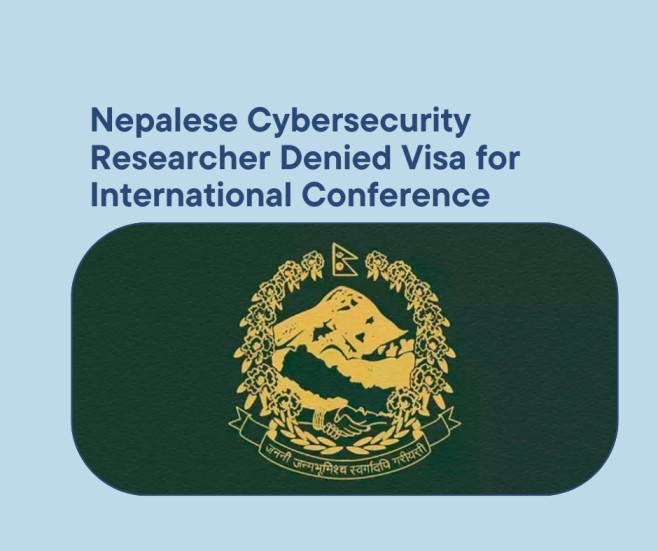
In a disappointing turn of events, Saugat Pokharel, a prominent Nepalese cybersecurity researcher, and his friends Rikesh and Mänôz were denied visas to attend a prestigious cybersecurity conference and live hacking event in South Korea. Despite having all the necessary documents for the visa process, their applications were rejected, leaving them unable to participate in the event.
The conference, organized by Facebook, brought together over 60 top researchers from more than 25 different countries, including representatives from renowned tech giants like Google and Qualcomm. Unfortunately, Saugat and his fellow Nepalese researchers became the only individuals among the invited participants to have their visa applications denied.
Expressing his disappointment, Saugat highlighted the significance of holding a passport from one of the bottom 10 countries on the World Passport Index. This experience shed light on the challenges faced by Nepalese citizens when seeking international travel opportunities, particularly when participating in global events and collaborations.
The denied visa not only prevented Saugat and his friends from engaging with fellow researchers but also limited their access to the latest advancements and insights in the cybersecurity field. The event, fully funded by Facebook, offered a valuable platform for networking, knowledge sharing, and collaboration among cybersecurity experts from around the world.
Saugat Pokharel hopes that in the near future, the Nepalese passport will gain significant trust and recognition, allowing its citizens to effortlessly enter various countries worldwide. He emphasizes the importance of bridging the gap and removing barriers that restrict researchers and professionals from underrepresented regions to participate in international events.
This incident serves as a reminder of the ongoing efforts required to promote inclusivity and equal opportunities in the global cybersecurity community. The hope is that the Nepalese government and international organizations will work together to address the challenges faced by Nepalese citizens, ensuring that their expertise and contributions are not limited due to visa restrictions.
Despite this setback, Saugat Pokharel remains determined to continue his cybersecurity research endeavors and foster collaborations within the industry. His experience highlights the need for increased support and recognition of talent from countries with lower passport rankings, ultimately strengthening global cybersecurity efforts as a whole.



